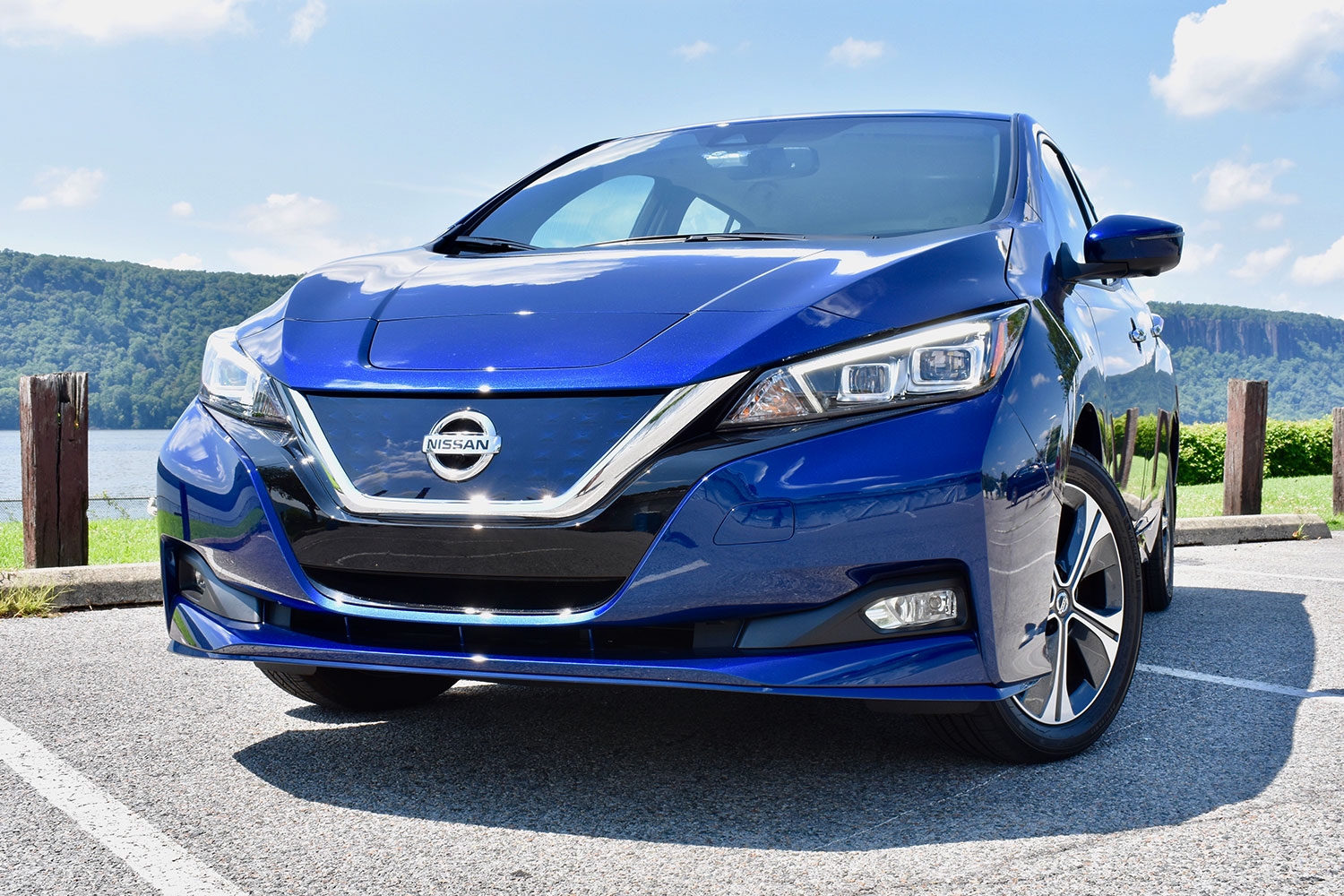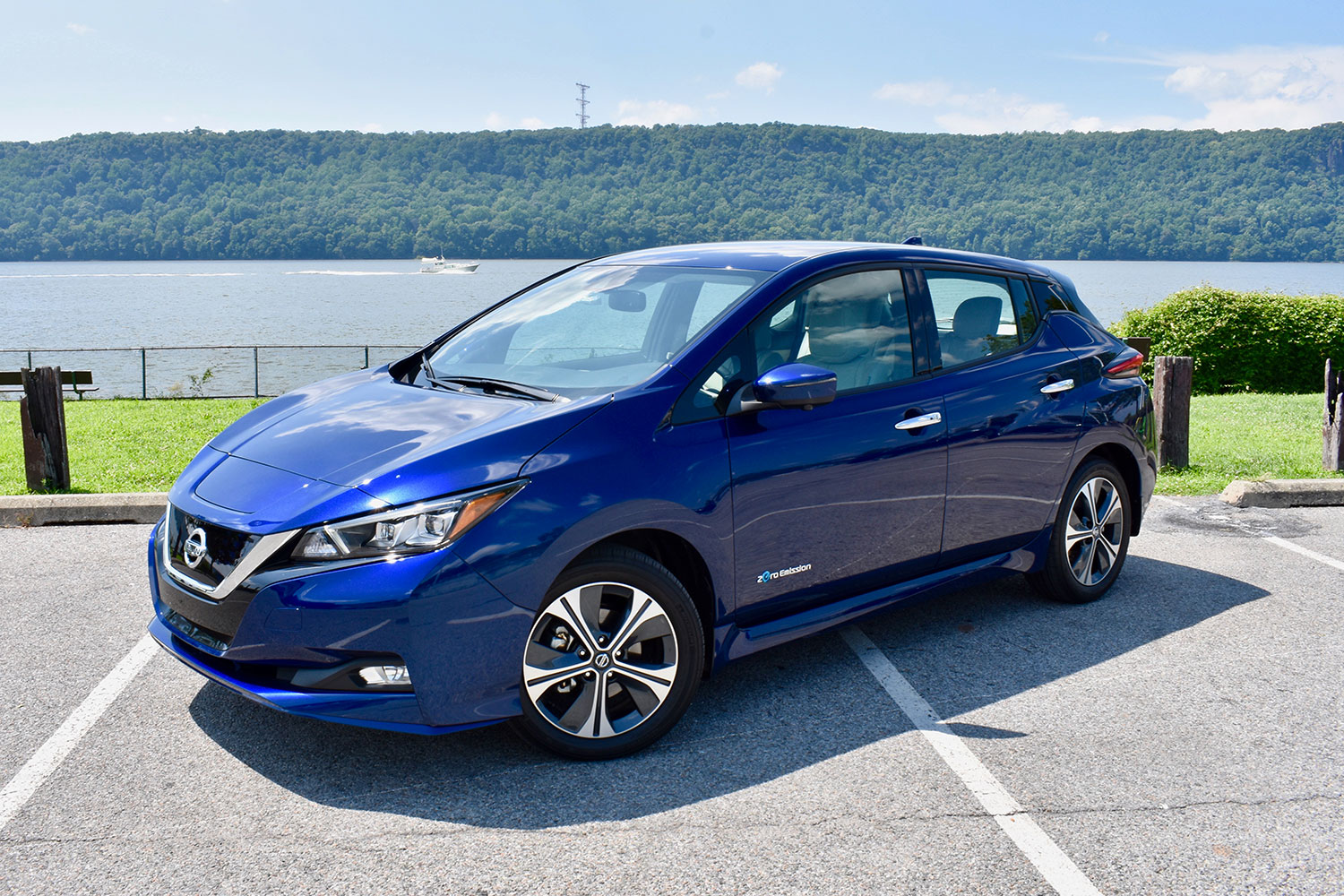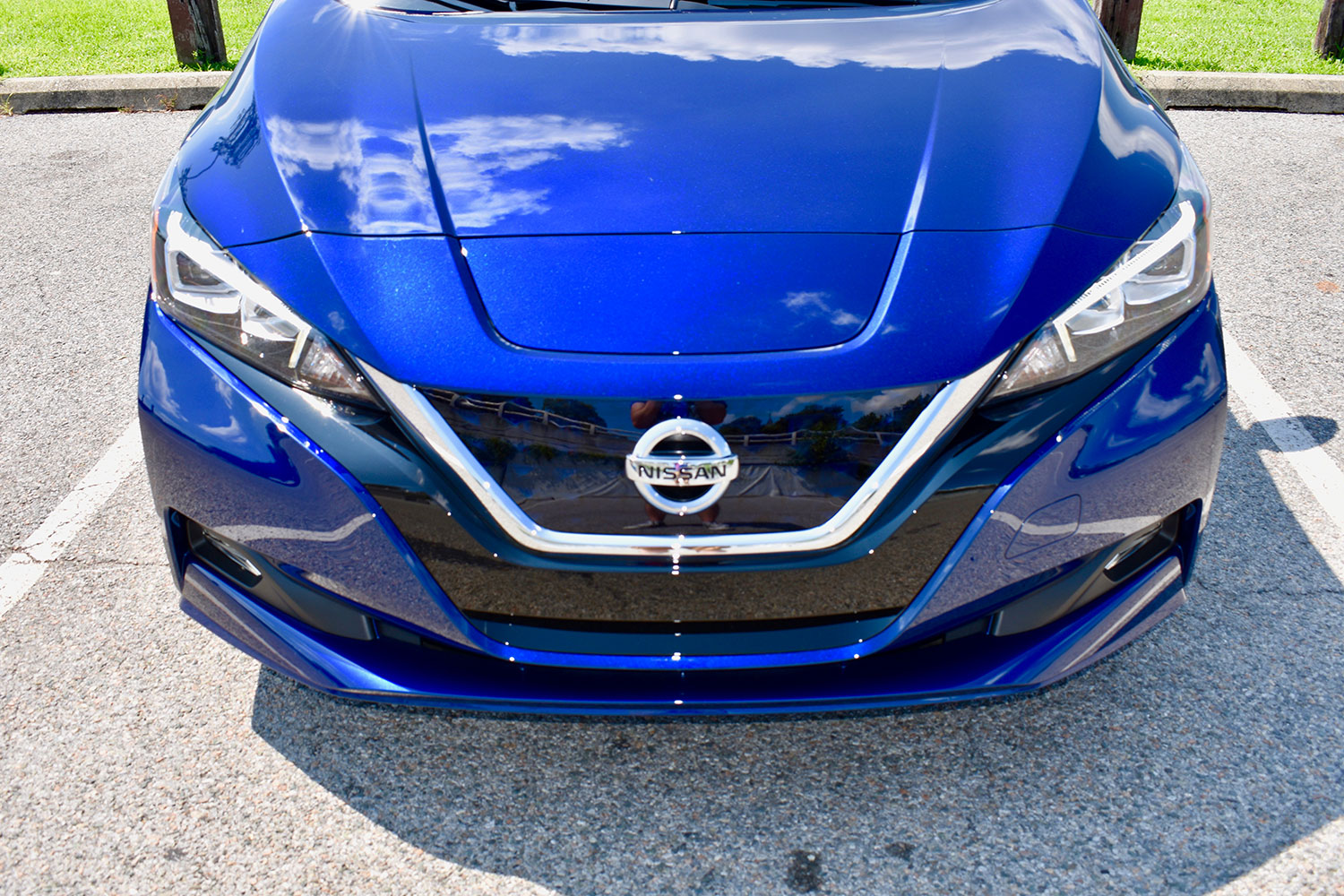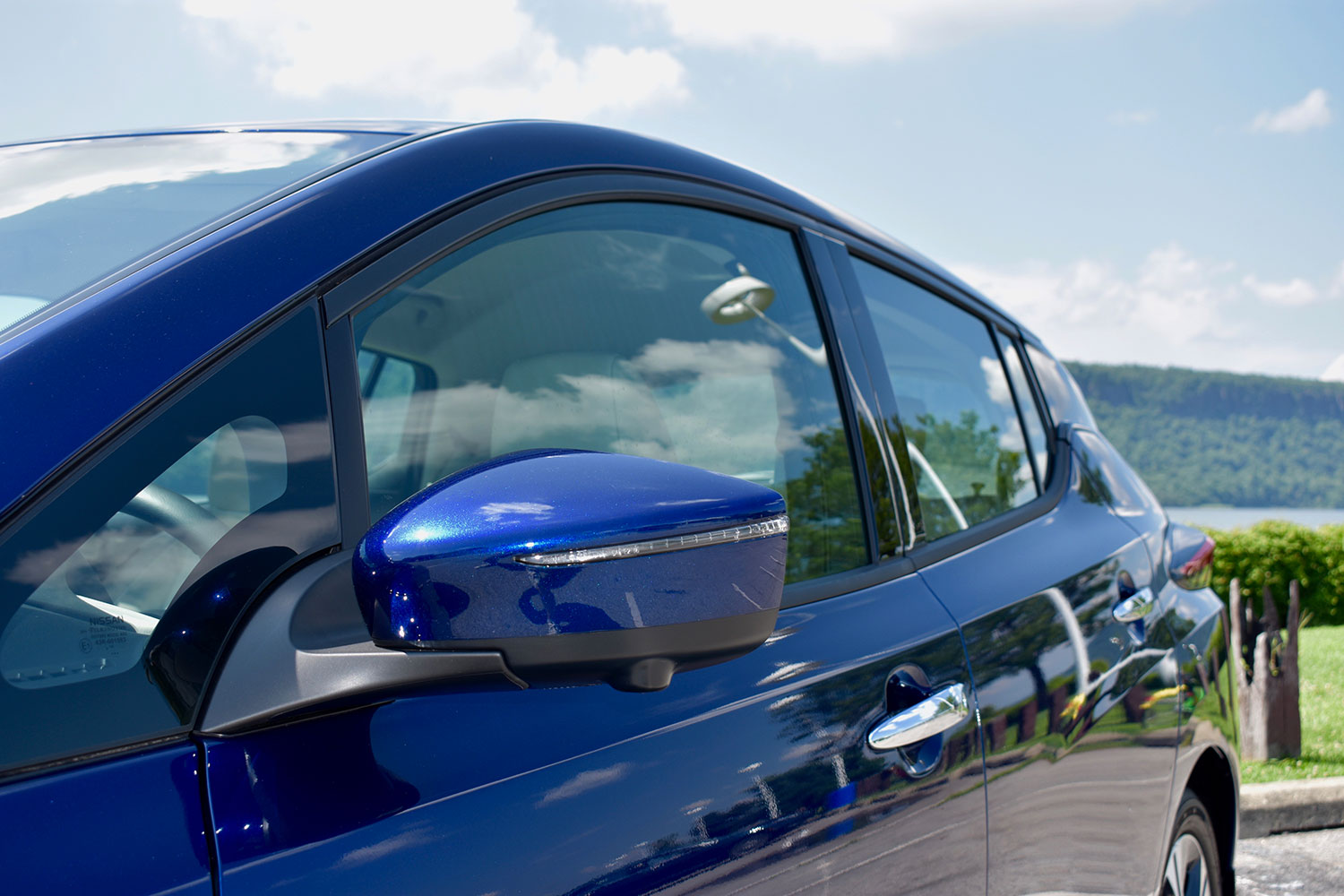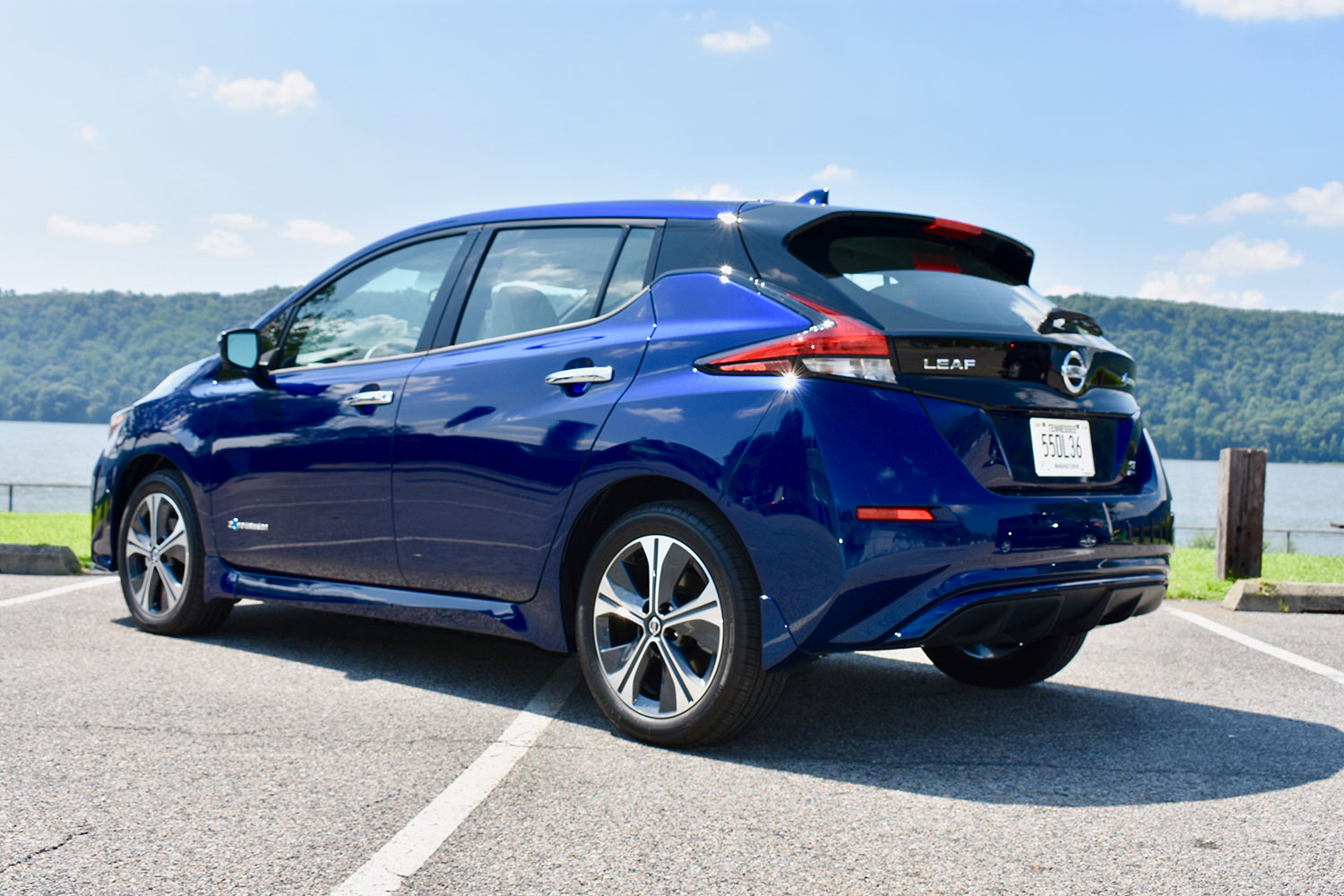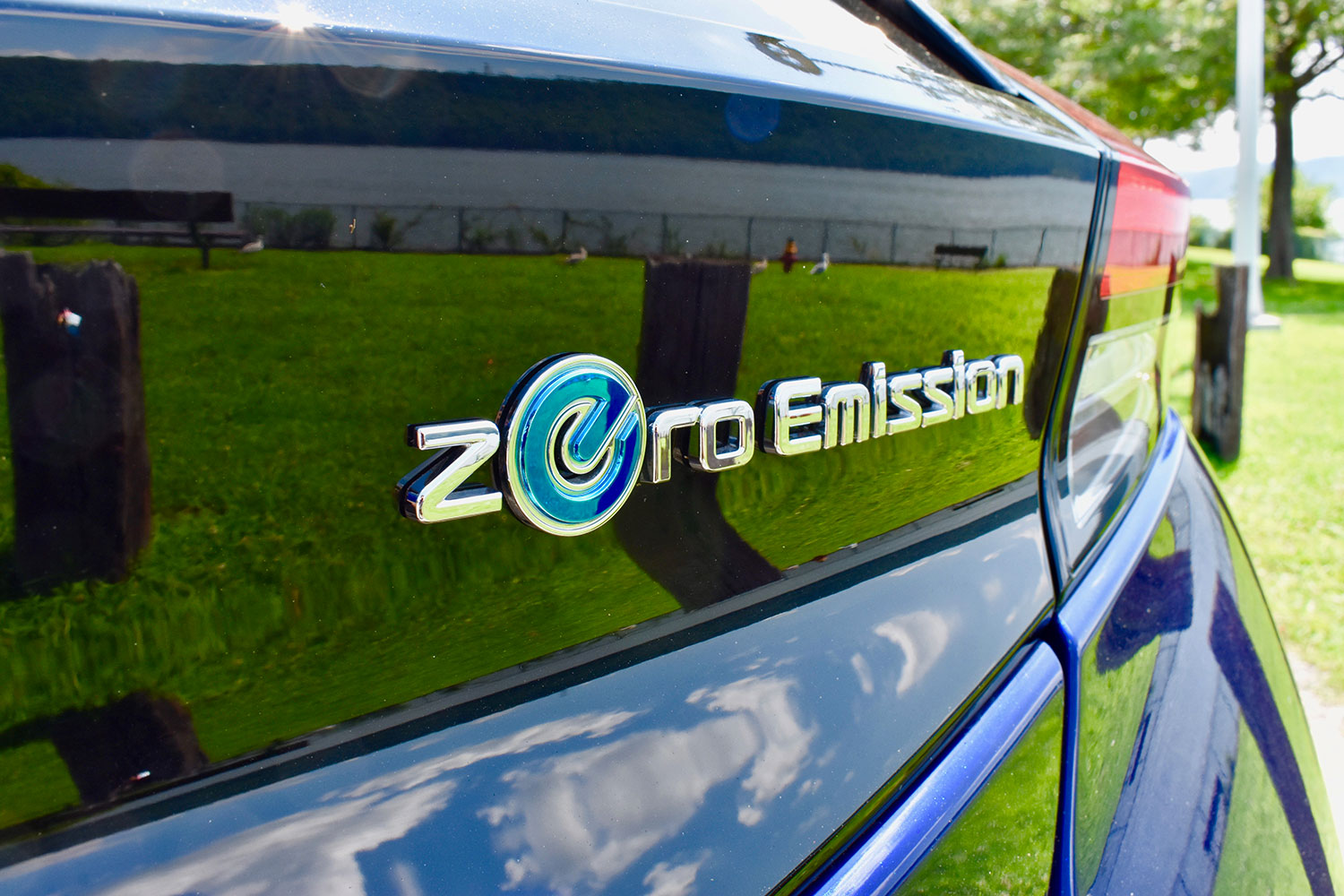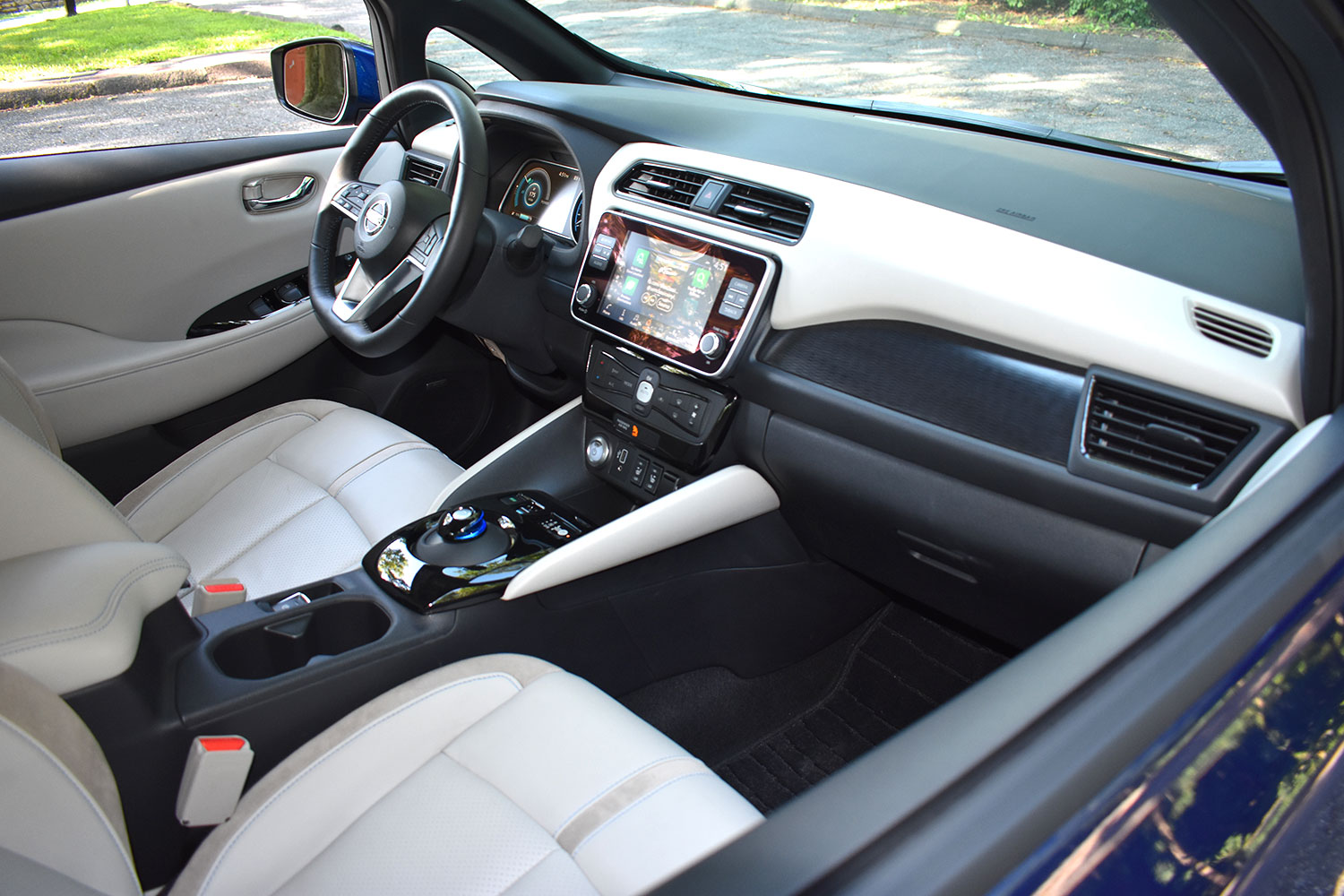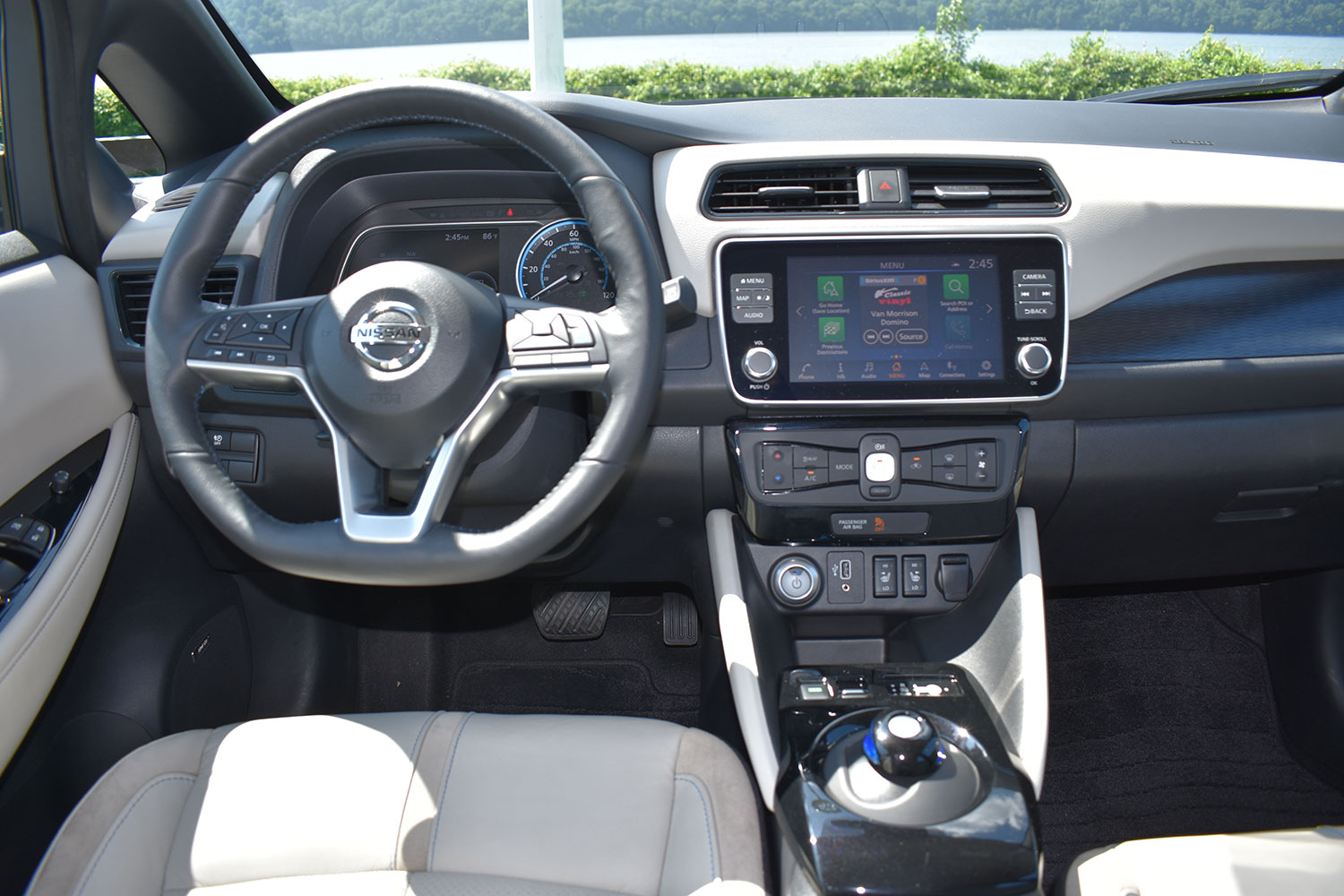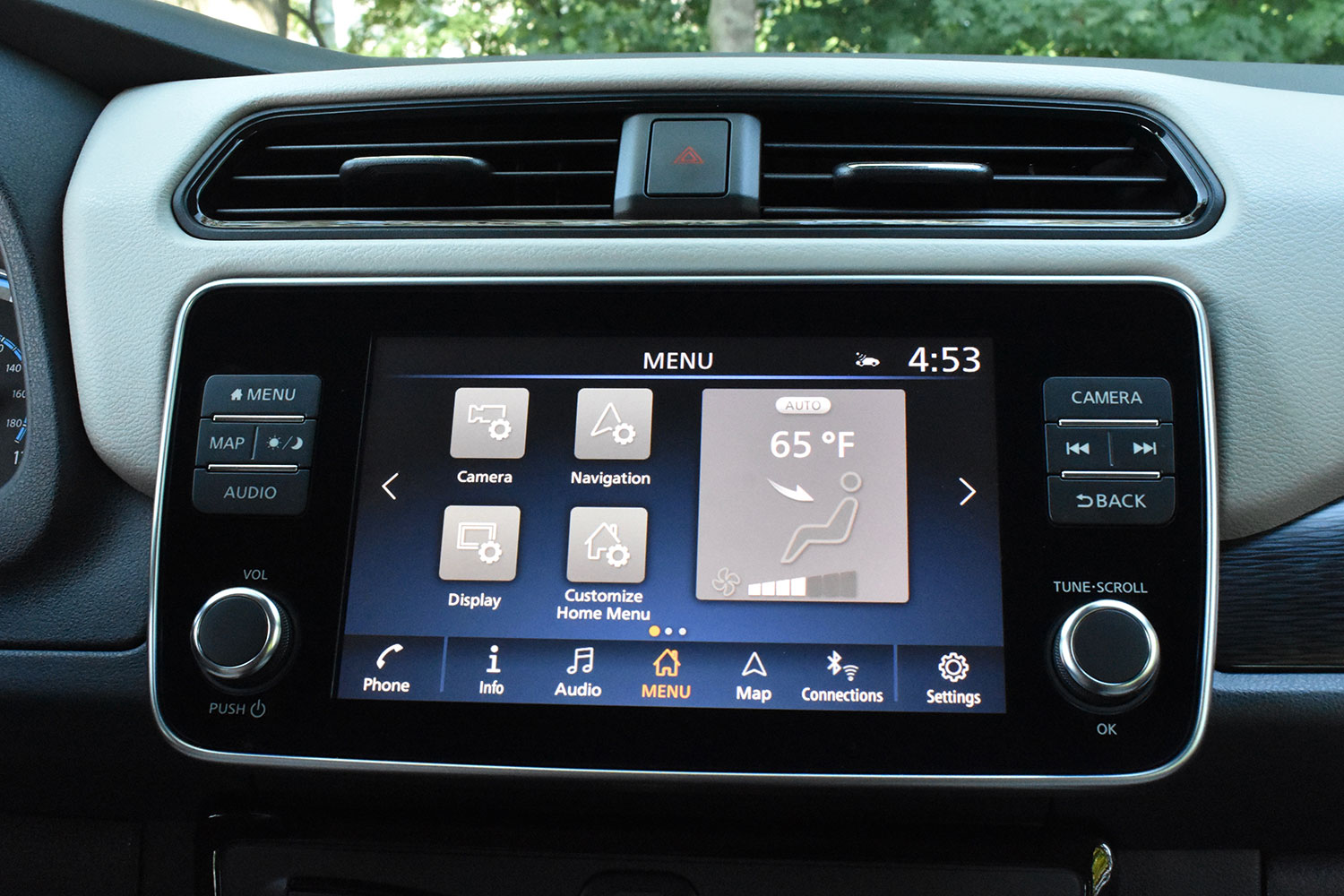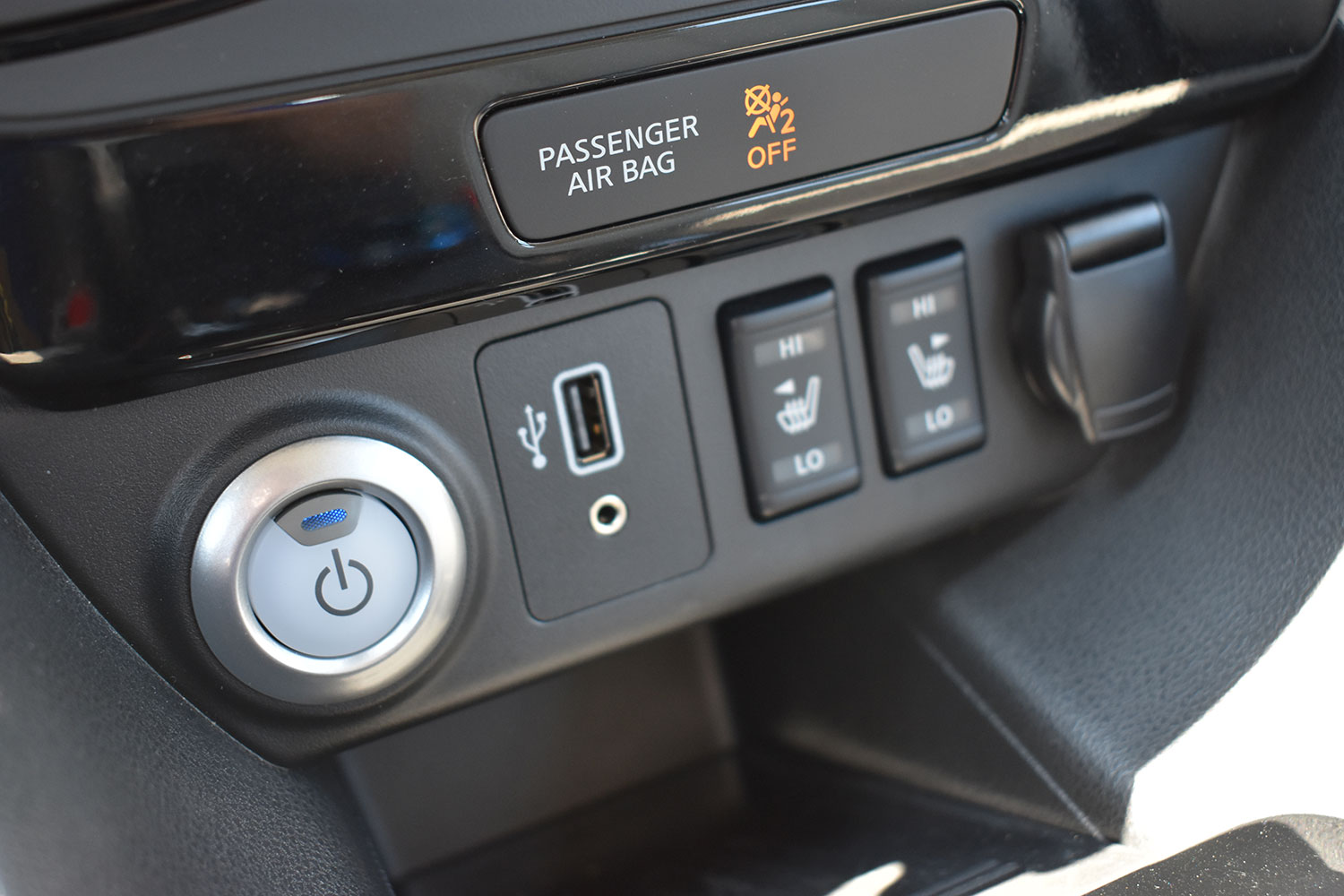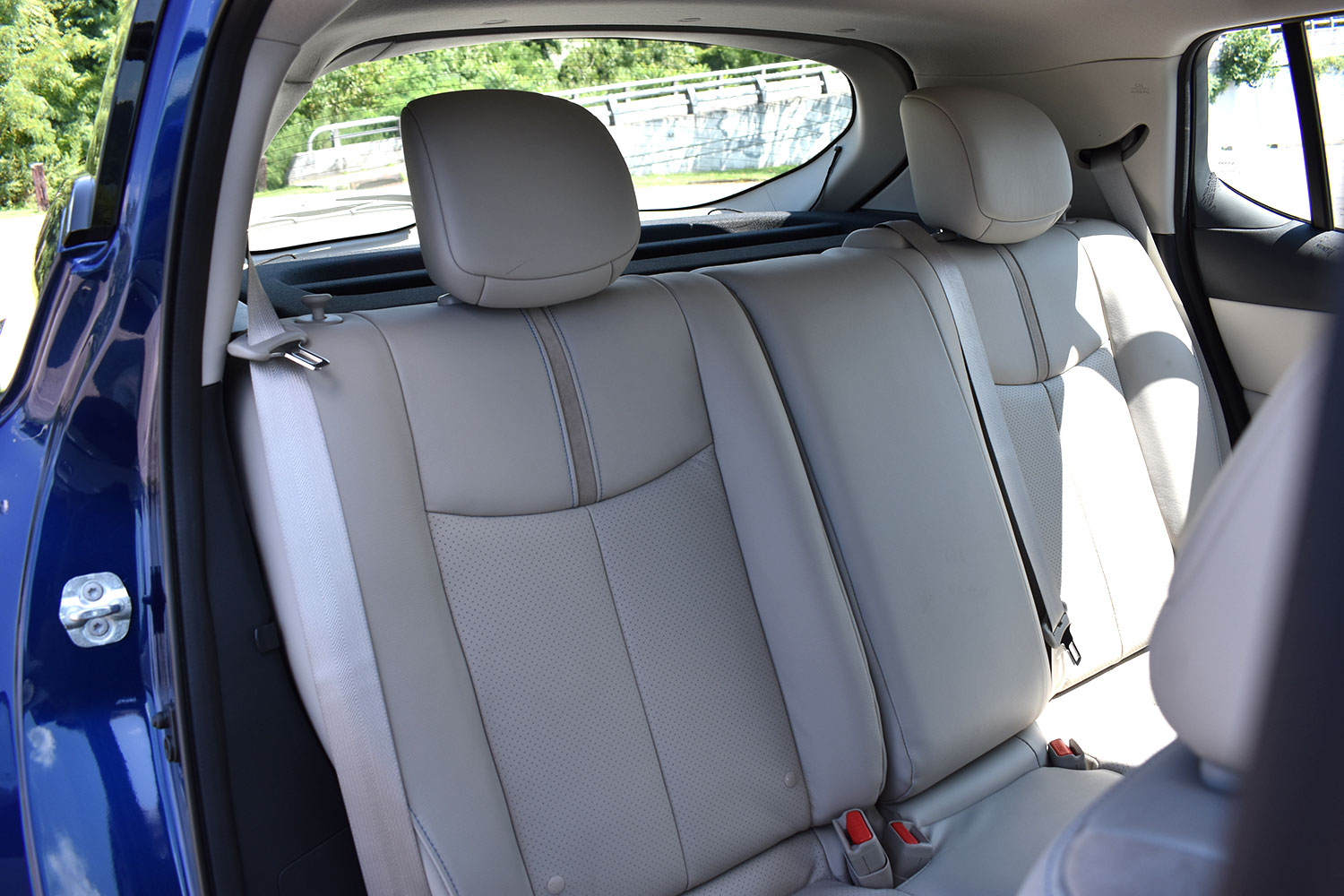The electric Nissan Leaf hatchback is entering the 2020 model year with more standard features, including a comprehensive suite of driver-assistance technology, and a correspondingly higher price. The Japanese firm also made a handful of smaller changes to its only battery-powered model to push it into the new decade.
The big news for the 2020 model year is the addition of Nissan Safety Shield 360 across the entire range. It bundles automatic emergency braking with pedestrian detection, lane departure warning, and rear automatic braking, electronic features which make the Leaf safer than the outgoing 2019 model. ProPilot Assist, which is the name of Nissan’s semiautonomous driving system, remains available at an extra cost.
On the topic of safety, Nissan modified the sound the Leaf emits to warn pedestrians it’s approaching. It calls the noise Canto, a word derived from the Latin word for singing. It’s a constant sound when the car is moving forward at less than 18.6 mph, and pulsing chime when the Leaf is in reverse. Canto makes up for the lack of engine noise.
The Leaf range remains split into three basic trim levels called S, SV, and SL. The first two gain an 8.0-inch touchscreen for the infotainment system. It’s compatible with Android Auto and Apple CarPlay.
There are no mechanical changes to report. Nissan asks buyers to choose between the standard 147-horsepower Leaf that offers up to 149 miles of driving range from a 40-kilowatt-hour lithium-ion battery pack, or the Plus-badged model with 214 hp and up to 226 miles of range thanks to a bigger 62-kWh battery.
The entry-level Leaf S starts at $31,600 with the smaller battery pack, or $38,200 with the bigger unit. The midrange SV carries a base price of $34,190 or $39,750 depending on the battery that powers it, while the range-topping SL is only offered with the 62-kWh pack and will set you back $43,900. None of the aforementioned figures include the mandatory $925 destination charge, which is like shipping and handling for cars.
The extra equipment unsurprisingly comes at a cost. To add context, Nissan charged $29,990 for the Leaf S, $36,550 for the S Plus, and $42,550 for the SL Plus during the 2019 model year.
